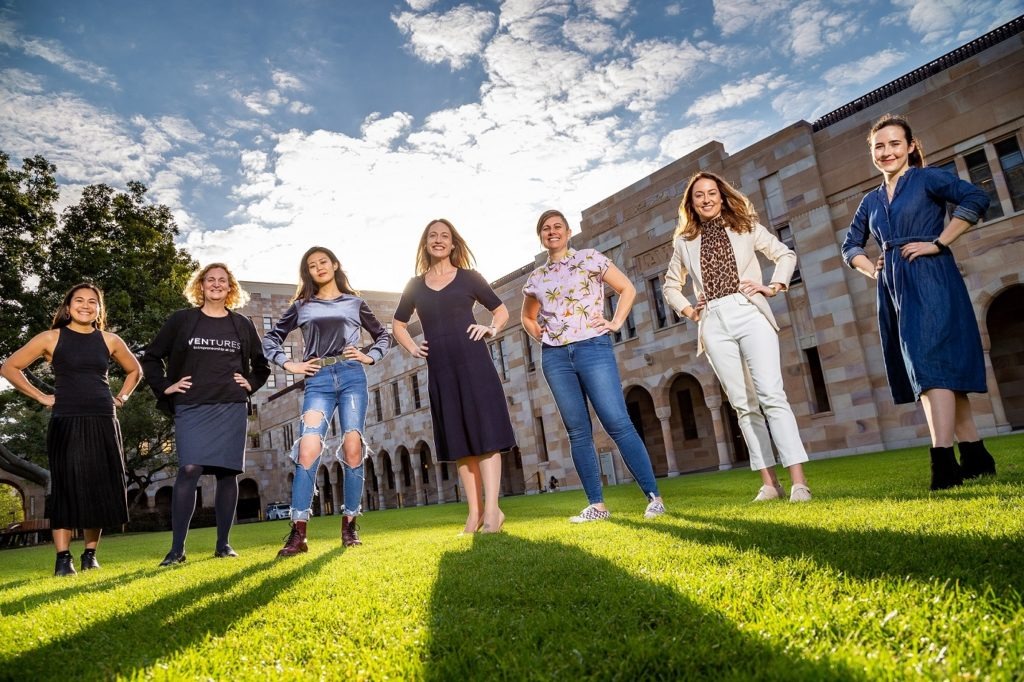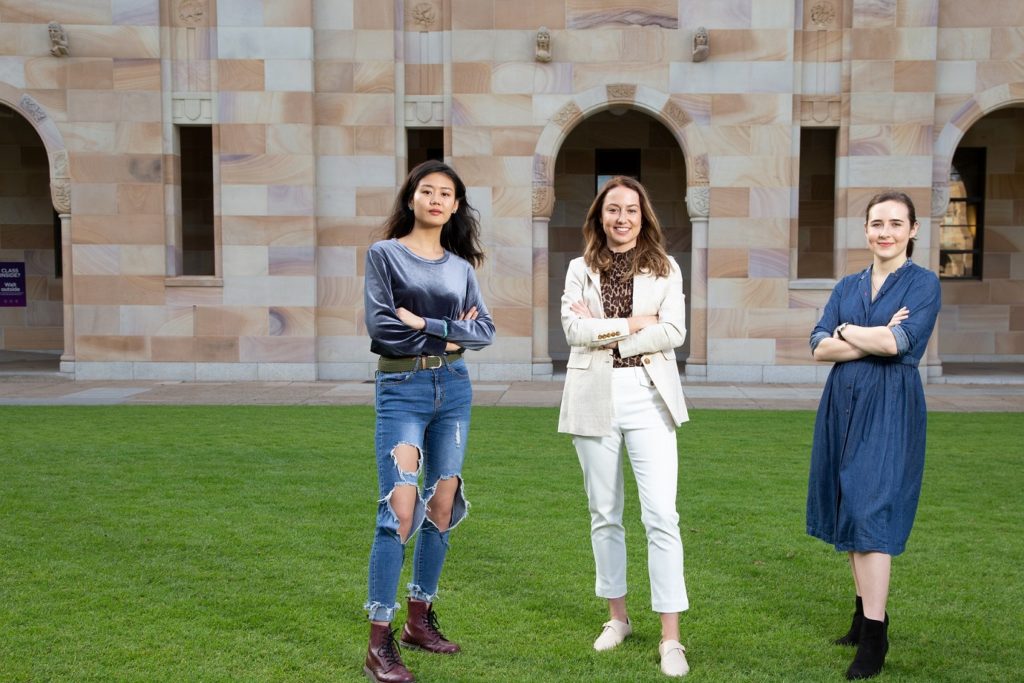Australia is officially in recession. With the unemployment rate climbing close to 10% by 2020’s end, we must harness the full potential of our national talent – foster innovation and entrepreneurship to create jobs, and rebuild our economy. A key factor in achieving this lies in addressing the gender imbalance in the entrepreneurial ecosystem, and expanding our number of female founders and leaders.
The Australian economy (alone) could grow by about $25 billion if we supported more women into the workforce and empowered them to achieve their full economic potential. Minister for Women, Hon Marise Payne, in the 2020 Women’s Economic Security Statement said, “When women’s individual economic security improves, their participation in work and leadership has flow-on benefits for business, industry, and whole economies.”
Barriers to female founders and female leaders are well documented and systemic. The Wade Institute of Entrepreneurship found accelerators and incubators improve the chances of startups receiving funding to scale and increase the chances of survival. However, female founders are not well represented in these accelerators. One of Australia’s best-known accelerators, Startmate, revealed their Melbourne 2017 intake had 15 startups, but only one with a female co-founder.
Furthermore, research in the US and UK points to findings that female-led or co-founded startups have lower failure rates, produce more capital-efficient companies and achieve venture-level returns. However, the Wade Institute revealed that of Venture Capital early stage funding of companies in Australia around 29.4% have at least one female founder, compared to 70.6% of male-only founders.
While a number of programs have been introduced in recent years to encourage and support our female entrepreneurs, such as Advance Queensland’s Female Founders program, and Commonwealth Government’s Boosting Female Founders Initiative, more is needed.
Activity reports highlight that women are participating in entrepreneurship training programs, but when it comes to accelerating their startup to founding a business attracting money (and gaining traction) they are not converting like their male counterparts.
Australian universities could play an important role in changing the narrative, addressing clichés and increasing the number of female founders, leaders and female run startups to improve economic opportunities.
A joint report between Universities Australia and Startup Muster on Universities and the startup economy finds that more than four in five Australian startup founders are university graduates. They concluded that almost one in five benefited from an acceleration or incubation program; and, with female founders more likely to have a university qualification (89%), and postgrad degree than male founders, university-based accelerators and incubators are perfectly positioned to change the startup economy for female founders.
How is one university making a difference?
At The University of Queensland (UQ), increasing the number of female students involved in entrepreneurship programs has been a key aspect of its broader strategy. In 2018, UQ introduced LeadHers, a leadership and confidence building program. LeadHers has grown from an initial cohort of 140 in 2018 to more than 360 participating in 2020. It is clear that there is demand from female students to gain skills and networks to support them to build their entrepreneurial mindsets.
In 2020, UQ has achieved parity in a number of its entrepreneurship programs, including Idea Hub Unlimited, where students test their early-stage ideas for startups, which has 50% female participation; and, 59% for Social Enterprise Explorer, where students learn key social entrepreneurship tools and methodologies.

Yet while many of the introductory and intermediate programs have seen increased numbers of female participants, when it comes to the University’s accelerator program, the numbers are not as positive. Over the past three to five years, the ilab Accelerator program attracted only 11% of female founders. Why?
Confidence is potentially one of the reasons. While scholars have debated the extent to which increased confidence actually enhances career prospects, anecdotally the women involved in UQ’s programs say that lacking confidence is a challenge when taking the leap with their ideas.
The first female Chief Student Entrepreneur at UQ, Rachael Dagge, notices that young women do not engage as much as their male peers, because they always underestimate themselves.
“When I interned at a startup in San Francisco every time we went to an event, the men put their hands up so confidently and asked questions, but all the women thought that because they didn’t have absolute expert knowledge in the space they couldn’t ask or they were embarrassed to ask,” said Rachael.
Another reason could be the lack of visible role models.
Expanding programs and achieving 50-50 balances are important, but seeing and hearing examples of others who have walked the path ahead are critical. Significant effort has gone into improving ratios of guest speakers and mentors at UQ, which are around 30% female (the target is 50% by 2022).
Raising the profile of female founders and successful female entrepreneurs is one way to show women ‘this is possible!’
There are young female Unicorns in Australia leading the way, like Melanie Perkins, Founder of Canva, an online graphic design company worth almost $4 billion. Or successful tech startup Envato, a digital assets and services company, that can generate real money – without external investors. Co-founder Cyan Ta-eed was named one of nine women on the 2019 Young Rich List (104 Australians in total). AFR estimates her wealth at $799 million. But we need more examples.
The Courier Mail recently profiled ‘Queensland’s 10 most successful start-ups’ and not one female founder was among them, which is a surprise given Queensland’s Chief Entrepreneur is tech founder Leanne Kemp; who was named one of the top 20 most influential female founders of 2020.
Why is it so important to show women making it as entrepreneurs?
Not all startups are run by male engineers.
Afghanistan born, Melbourne-based Samira Tollo an electrical engineering graduate who started her own Fintech startup, Elbaite, at 23, has secured investor capital at a valuation of $3.6 million. She used connections like LeadHers to get guidance on how to run her startup.
“Having an entrepreneurship community at UQ normalised the career choice I really wanted to make,” said Samira.
“Especially doing engineering, my peers just wanted a well-paid job.”
Samira is one of only 14% of females represented in the fintech space.
While at UQ, Samira received awards to help her step into entrepreneurship, such as the Australian Government New Colombo Plan scholarship to intern at a startup in Singapore; and, a Queensland Government Supporting Women Scholarship for women studying in male dominated fields.
Plus there is mentorship, funding, and access to opportunities
CEO and Founder at ParentTV, Sam Jockel, joined UQ Ventures as the first female Entrepreneur in Residence.
“I would advice any young woman wanting to pursue their own startup to do everything they can to quiet the voice inside them that says they are not enough,” said Sam.
“Last month, I got a revenue deal (not investment) over the line! This solo female founder and mum of three from Redcliffe signed up a billion-dollar company on a three-year contract using our product across their network of 500 childcare centres.”
Australian universities have many of the key ingredients for supporting a richer, more inclusive national innovation and entrepreneurship eco-system. They are built on cultures of discovery; bring the brightest minds from around the world together; and, provide a safe environment for challenging assumptions, testing new ideas and accessing multidisciplinary perspectives.
Changing the dial requires all components of the eco-system to work together – innovative government programs and policies, support from industry and a vibrant innovation and entrepreneurship culture for our universities.
There is no better time to mobilise our female founders and leaders to rebuild our economy, create new jobs and make a positive impact on our global community.
UQ Ventures will celebrate Women’s Entrepreneurship Day on 19 November. This event is open to the public and free to attend.
Dr Jessica Gallagher is the Pro-Vice-Chancellor, Global Engagement and Entrepreneurship, at The University of Queensland. Josepha Dietrich is the Intelligence and Engagement Coordinator at The University of Queensland.


